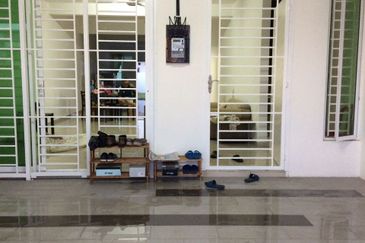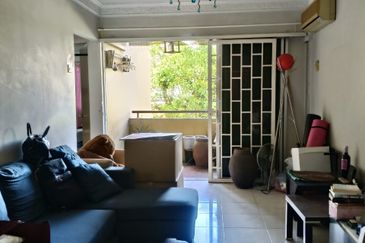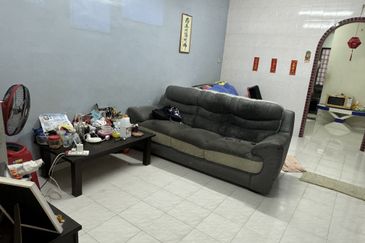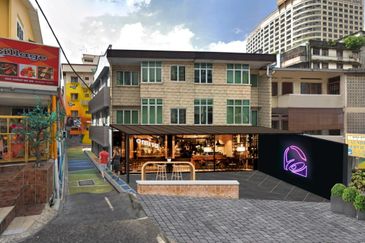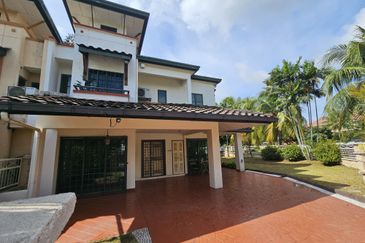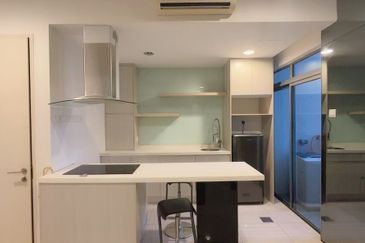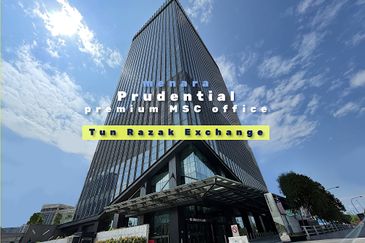
KUALA LUMPUR (Sept 29): Eight out of 10 Malaysian banks are trading below their book values.
Based on yesterday's closing of RM1.40, Affin Bank Bhd was trading at the lowest in terms of price-to-book value (P/BV) ratio. The country's smallest lender was trading at 0.29 times of P/BV, followed by Malaysia Building Society Bhd (MBSB) at 0.41 times.
Malayan Banking Bhd was trading at 0.97 times, while CIMB Group Holdings Bhd was at 0.54 times.
CGS-CIMB Research pointed out that banks yesterday were trading at their lowest price-earnings ratios (PERs) since 2013 and were at all-time-low P/BVs.
"Banks underperformed the KLCI by 5.6% in 2019, and 15% [year to date]. The banking sector is currently trading at an attractive forecast P/BV of only one time for year 2020.
"The [calendar year 2021 forecast (CY21F) PER of 10.5 times] was also the lowest since February 2013. This suggests that the market has priced in the concerns over earnings risks but yet to fully appreciate the projected earnings recovery in 2021 as Malaysia recovers from the Covid-19 outbreak," said CGS-CIMB Research on its latest sectoral report dated Sept 19.
Banks' valuations appear to be attractive in terms of P/BV but they are not that appealing in terms of return on equity.
Chan Jit Hoong, banking analyst at Hong Leong Investment Bank Research (HLIB Research), believes that the current valuations for banking stocks are "fair if one compares it against the low ROE (return on equity) generation of banks".
The average ROEs for Malaysian banks are at 7% compared to five-year mean of 10%.
"ROEs are depressed but we expect a recovery next year, backed by V-shape earnings recovery," he told The Edge.
However, Chan cautioned that with recent rising Covid-19 cases, there is a risk of a U- or W-shape earnings recovery.
"Furthermore, the unemployment rate [was] still elevated at 4.7% [for July] from the normal run rate of the 3% range.
"As such, I prefer to observe first before turning more bullish on the sector. On the ground checks with the banks show that they themselves are pretty much cautious as well and are on guard," said Chan, who has a "neutral" call on the sector.
He pointed out that while loan applications continued to rise 5.9% year-on-year for July due to better credit demand from households (+15.4%), loan approvals fell 14.3% given tighter lending for both households (-7.8%) and business sector (-22.6%).
Nevertheless, Chan expects margin pressure for banks to improve next year.
"Despite rising Covid-19 cases, recovery is on the way looking at GDP (gross domestic product) patterns as the second quarter is likely the worst and the bottom. On top of that, with the right SOPs (standard operating procedures) in place now, we have a better handle of the Covid-19 situation while at the same time, the economy can continue functioning," he added.
Chan anticipates the sector's gross-impaired-loan ratio to remain at low levels for the rest of the year as banks will provide targeted assistance once the blanket loan moratorium ends this Wednesday (Sept 30).
However, Chan cautioned that it may hide actual damage and cause a lag in non-performing loan formation if the situation does not improve rapidly or an advent of Covid-19 second wave paralyses the country again.
For exposure, Chan said the only bank he likes now is RHB given its appealing risk-reward profile, backed by undemanding valuations, strong 16.6% CET1 ratio (sector: 14.4%), and fairly large untapped FVOCI (Fair Value through Other Comprehensive Income) reserves.
HLIB Research has a "buy" call on RHB with a target price of RM5.80.
"NIM (net interest margin) pressure should be subsiding as banks would be repricing their deposits downwards. With deposits repriced downwards and minimal downside risk to OPR (overnight policy rate), NIMs should be better next year. There is little downside from here on," he noted.
Meanwhile, CGS-CIMB Research believes that big-cap banks with better asset qualities are likely to lead the rerating of the banking sector as investors rotate into sectors deemed likely to benefit from projected economic recovery in 2021.
CGS-CIMB Research noted that it likes Public Bank Bhd and Hong Leong Bank Bhd for their strong asset qualities, RHB Bank Bhd for the fee-income driver from new bancatakaful agreement, and AMMB Holdings Bhd for attractive valuations (CY21F PER of 6.4 times).
Get the latest news @ www.EdgeProp.my
TOP PICKS BY EDGEPROP
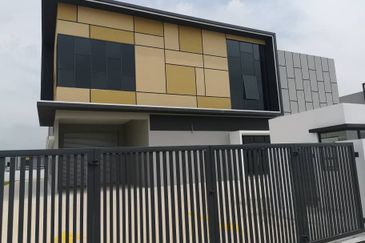
Eco Business Park V
Bandar Puncak Alam, Selangor

Camellia service suites
Bangsar South, Kuala Lumpur

M'Tiara Apartment @ Larkin Idaman
Johor Bahru, Johor

Section 13 (Seksyen 13)
Petaling Jaya, Selangor



